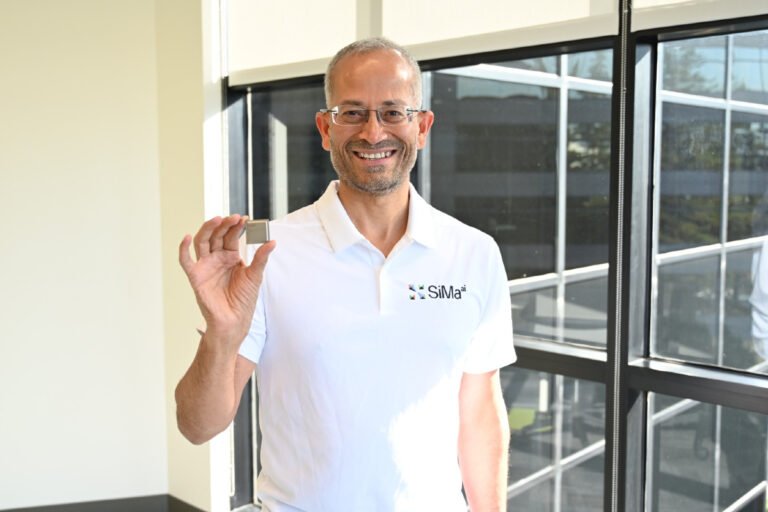
SiMa.ai, named after Seema, the Hindi word for “boundary,” strives to leverage this shift by offering its edge AI SoC to organizations across industrial manufacturing, retail, aerospace, defense, agriculture and healthcare sectors.
As the demand for GenAI is growing, SiMa.ai is set to introduce its second-generation ML SoC in the first quarter of 2025 with an emphasis on providing its customers with multimodal GenAI capability.
The new SoC will be an “evolutionary change” over its predecessor with “a few architectural tunings” over the existing ML chipset, Rangasayee said.
It would work as a single-edge platform for all AI across computer vision, transformers and multimodal GenAI, the startup said.
The second-generation chipset will be based on TSMC’s 6nm process technology and include Synopsys EV74 embedded vision processors for pre- and post-processing in computer vision applications.

Nvidia might be clouding the funding climate for AI chip startups, but Hailo is still fightingHello, and welcome back to Equity, a podcast about the business of startups, where we unpack the numbers and nuance behind the headlines.
This is our Wednesday show, when we take a moment to dig into a raft of startup and venture capital news.
No big tech here!
Keep in mind that Y Combinator’s demo day kicks off today, so we’re going to be snowed-under in startup news the rest of the week.
Consider today’s show the calm before the storm.

Web browser company Opera announced today it will now allow users to download and use Large Language Models (LLMs) locally on their computer.
This feature is first rolling out to Opera One users who get developer stream updates and will allow users to select from over 150 models from more than 50 families.
The feature will be available to users as part of Opera’s AI Feature Drops Program to let users have early access to some of the AI features.
Notably, Opera is not doing any work to save storage while downloading a model.
“Opera has now for the first time ever provided access to a large selection of 3rd party local LLMs directly in the browser.
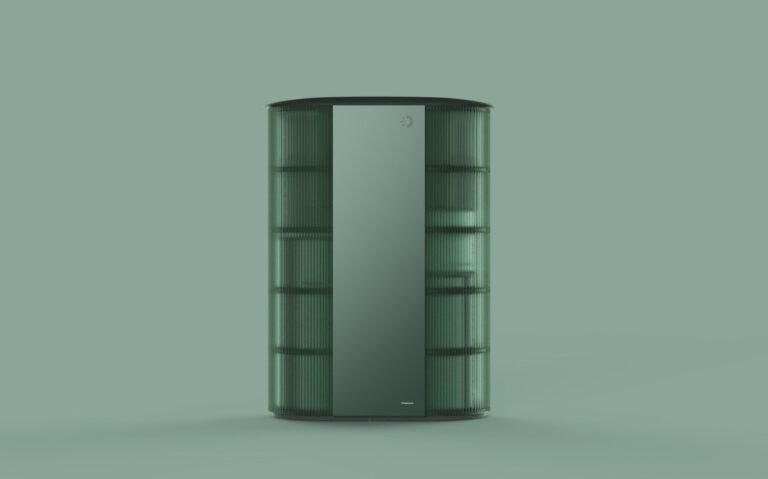
For years, the solar energy sector has grappled with interseasonal energy storage.
The claim is this tech does the storage more cost-effectively than any battery or liquid hydrogen solution on the market.
It enables hydrogen storage at densities approximately 50% greater than liquid hydrogen, presenting a significant advancement in hydrogen storage solutions.
A robust, reusable energy storage solution could bridge these timings, ensuring a stable energy supply when these renewable sources encounter unavoidable intermittent periods.
The firm certainly has investors’ attention: Photoncycle just raised $5.3 million (€5 million) to build its first few power storage devices in Denmark, which Photoncycle has chosen as its test market.

The funding climate for AI chip startups, once as sunny as a mid-July day, is beginning to cloud over as Nvidia asserts its dominance.
AI chip company Mythic ran out of cash in 2022 and was nearly forced to halt operations, while Graphcore, a once-well-capitalized rival, now faces mounting losses.
But one startup appears to have found success in the ultra-competitive — and increasingly crowded — AI chip space.
“I co-founded Hailo with the mission to make high-performance AI available at scale outside the realm of data centers,” Danon told TechCrunch.
“In recent years, we’ve seen a surge in demand for edge AI applications in most industries ranging from airport security to food packaging,” he said.
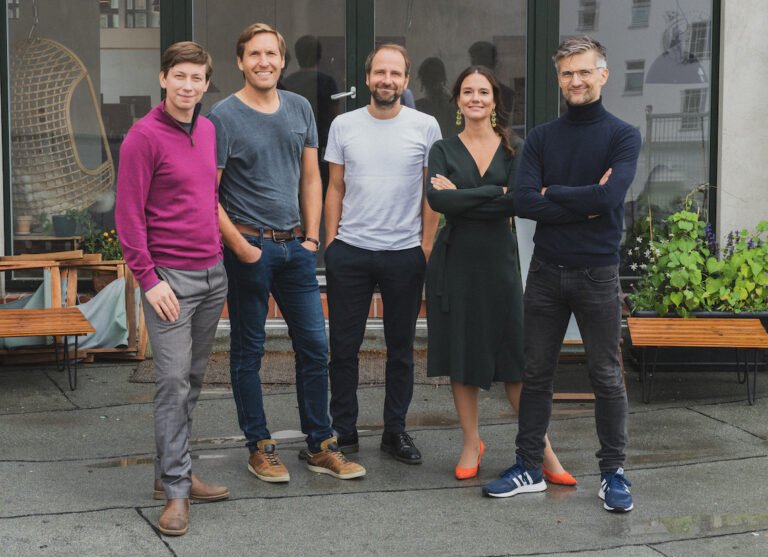
If you’re looking for comparisons, Norrsken VC is a $130 million impact VC that covers climate, while Demeter Partners last raised a €250 million fund focused on climate.
World Fund is also backed by pension funds including the UK Environment Agency Pension Fund, Wiltshire Pension Fund, and Croatia’s Erste Plavi.
World Fund has completed its raise during a war in Europe, interest rate rises, and jittery LPs.
In 2023 there was over $20 billion raised by European climate tech startups, almost matching the previous year, and bucking declining trends in other sectors, according to Dealroom.
The U.K., Sweden and Germany led for total climate tech VC in 2023 but Iceland, Lithuania and Bulgaria showed notable growth.
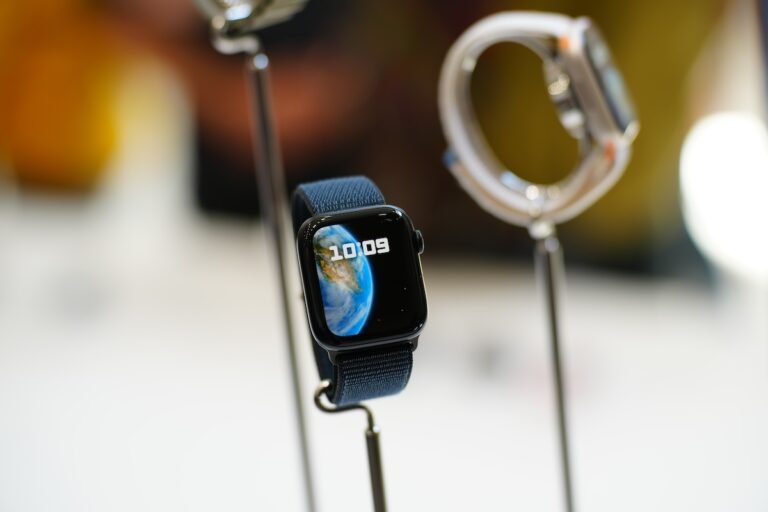
The Apple Watch gets some face time in the filing, as well.
The suit rightly notes that the Apple Watch is “only compatible with the iPhone” – a longstanding complaint among Android users interested in picking up what is far and away the market share leader.
Apple is not, however, alone in ensuring that certain functionality only operates as stated with first-party hardware, however.
The Apple Watch has historically been even more dominant in its respective category than the iPhone in the global market.
Should the DOJ’s suit force the company to open Apple Watch functionality, it would not only limit watch-based iPhone sales, it would also potentially open the device up to Android users, which, in turn, could have a positive impact on sales.

In addition, Redis today announced that it has acquired storage engine Speedb (pronounced ‘speedy-bee’) to take it beyond the in-memory space.
Redis license changesIn some way, the licensing move is no surprise.
We’ve seen other open source companies like MongoDB, Elastic and Confluent make similar moves.
He is also quite aware that these new license mean Redis won’t be considered open source, at least according to the definition of the Open Source Institute.
Because of the BSD license, Redis wasn’t able to put its latest innovations into Redis Core, meaning it was missing features like search and query, for example.
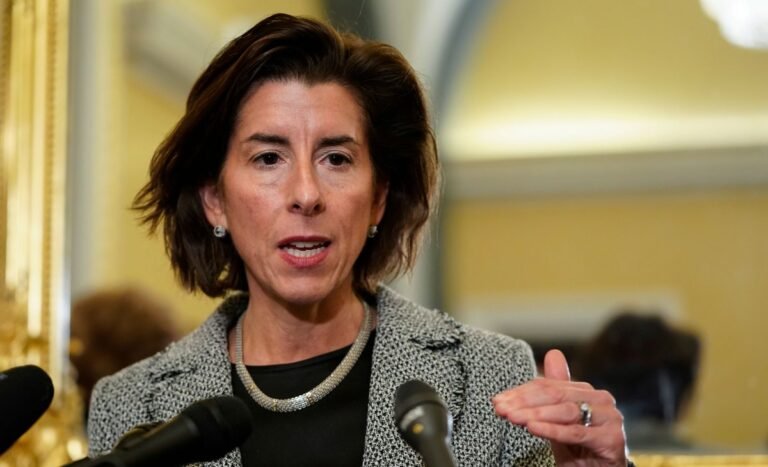
The CHIPS Act can be seen as a direct result of a number of pressing geopolitical issues.
The above, coupled with long-standing efforts to revitalize U.S. industry, spurred on economic efforts to reshore manufacturing.
While the CHIPS Act was still winding its way through Capitol Hill, Intel announced plans to open a $10 billion manufacturing facility just outside of Columbus, Ohio.
It says it expects those efforts will create 20,000 construction and 10,000 manufacturing jobs — music to the ears of an administration keenly focused on monthly jobs reports.
Notably, Intel recently pushed back the manufacturing start date of its New Albany, Ohio, plant two years to 2027, citing changes to the business environment.
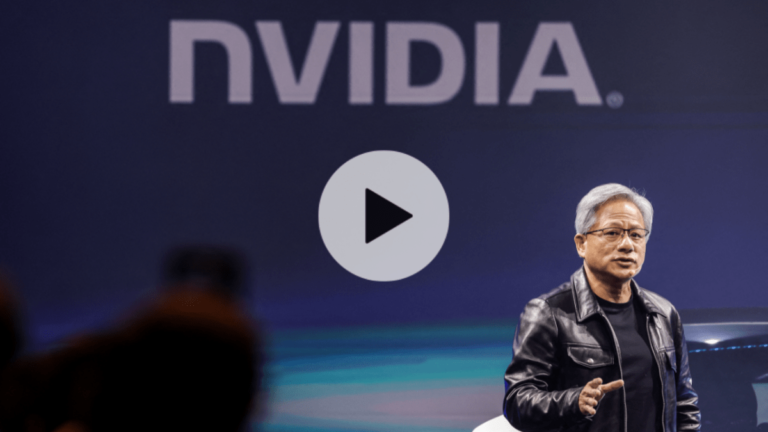
Chip giant Nvidia is hosting a massive AI conference as part of its GTC event this week, which kicks off Monday.
With a keynote planned from Jensen Huang, CEO and co-founder, of the company best known in year’s past for its gaming hardware and today for its massive market share in the burgeoning AI hardware market, expect Nvidia to make some news.
Given how many AI startups and giants alike use Nvidia gear, TechCrunch is expecting quite a lot to shake loose over the next few days.
To presage the confab, and detail just why we’re paying such close attention to a single company’s industry event, hit play below.
Stick close to TechCrunch for coverage throughout the week.













